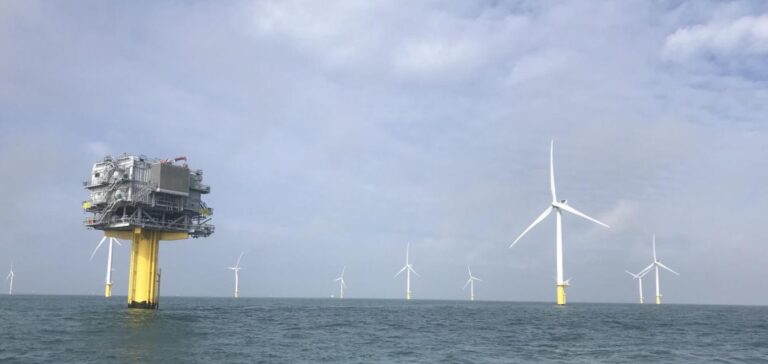The European Commission recently approved a €10.82 billion financial support plan proposed by France to stimulate the development of offshore wind power. This program is structured within the framework of the State aid Temporary Crisis and Transition Framework (TCTF), aimed at strengthening France‘s renewable energy capacities. Spread over a 20-year period, this project focuses on the construction and operation of two offshore wind farms: one in the South Atlantic zone and the other in the Centre Manche 2 zone in Normandy.
Project Features and Support Mechanisms
The South Atlantic wind farm is planned to have a capacity of 1000 to 1200MW, generating at least 3.9TWh of electricity per year. The Normandy wind farm, meanwhile, is expected to have a capacity of 1400 to 1600MW, generating around 6.1TWh per year. Financial support will take the form of a variable monthly bonus based on a two-way Contract for Difference (CfD). When the market price is lower than the reference price determined by the call for tenders, beneficiaries will receive the difference; conversely, they will have to repay the surplus if the market price exceeds the reference price.
Selection and Compliance Procedures
Aid will be allocated through transparent, non-discriminatory tendering processes, guaranteeing a fair selection of beneficiaries. The Commission judged this plan to be in line with the TCTF conditions, notably in terms of estimated volume and budget, competitive selection processes, and implementation before December 31, 2025. The project aims to accelerate the energy transition and support strategic economic activities.
Background and economic implications
Adopted on March 9, 2023, the TCTF enables member states to finance projects in key sectors to achieve a net zero emissions economy. By supporting offshore wind energy, France aims to strengthen its energy security while stimulating the local economy through job creation and the development of new infrastructure. The plan also represents a strategic response to today’s energy challenges, offering a sustainable and competitive alternative to traditional energy sources.
Massive investment in offshore wind power reflects France’s commitment to diversifying its energy mix. The Sud Atlantique and Normandie projects will not only boost the country’s renewable energy production capacity, but also stimulate innovation and industrialization in the energy sector.
This ambitious investment plan could serve as a model for other European countries, showing the way towards a more resilient and competitive energy transition. The competitiveness of renewable energies against fossil fuels is becoming increasingly evident, and this project could act as a catalyst for similar investments across Europe.






















